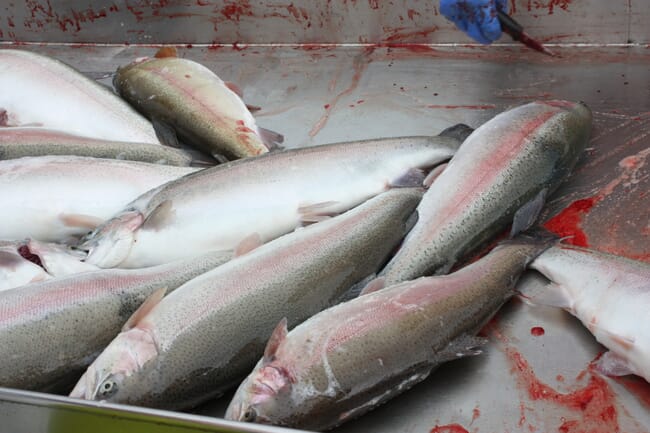Less than two years after Cooke bought the sites from Icicle Foods Washington State voted to phase out net-pen farming of non-native fish – meaning that Cooke has had to look for alternatives to Atlantic salmon. The company first submitted an application to raise trout in January 2019 in an effort to transition from farming Atlantic salmon in the company’s existing Puget Sound net pens.

This week the Washington Department of Fish and Wildlife (WDFW) granted a five-year permit for the production of rainbow trout at up to seven of its existing salmon sites.
WDFW approved the permit following an extensive State Environmental Policy Act (SEPA) public comment period, which saw more than 3,500 comments submitted. WDFW created a detailed document addressing Cooke’s proposal that also serves, in part, as a response to those comments.
“We heard from a huge number of stakeholders on this issue, and we appreciate everyone who took time to make their voice heard as part of this process,” said WDFW deputy director Amy Windrope. “This permit was approved based on scientific review and is contingent on Cooke complying with strict provisions designed to minimise any risk to native fish species.”
Provisions include:
- A comprehensive escape prevention, response, and report plan;
- Biennial inspections of net-pen facilities by a WDFW-approved marine engineering firm, to check for structural integrity and permit compliance;
- Immediate reports to WDFW of any escaped fish, as well as a unique marking identifying all commercial aquaculture fish;
- Sampling and testing of smolts before being transferred to marine net pens, to ensure that they are free of disease;
- Annual fish health evaluation reports; and
- Tissue sampling for genetic analysis of broodstock by WDFW.


